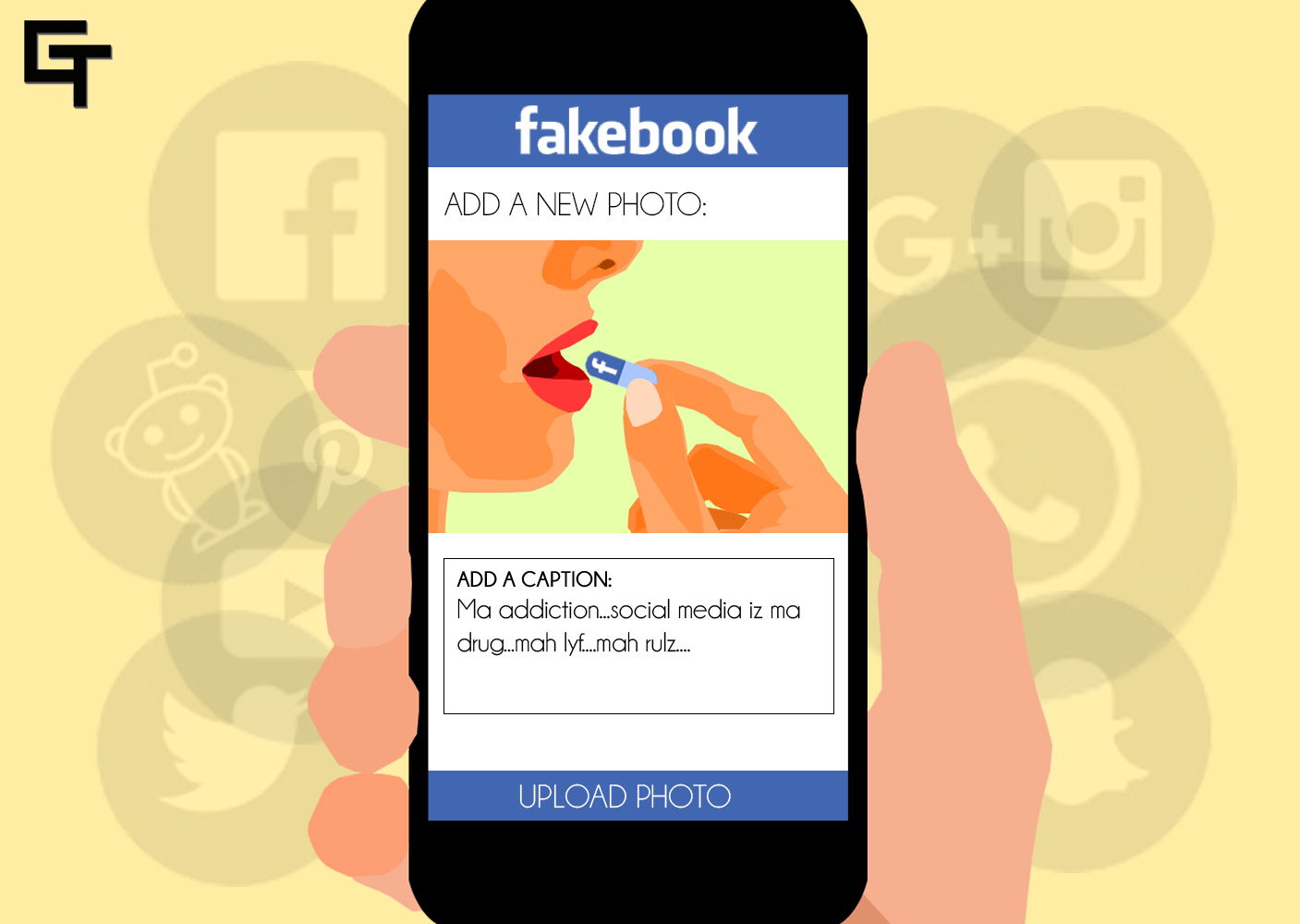The word ‘social media’ itself is ironic, isn’t it? There are no social interactions, only virtual conversations with no emotions involved. Texting and talking eye to eye to a person are two completely different things. We fake our emotions and distort them using emoji, the tone of our words morphs into lifeless text.
We can take all the time we want to respond to a text, but not in a live conversation. That’s the reason why some people say that they can communicate through text very well but not in a face-to-face conversation. We travel to different places and experience many things, but sometimes we do it because we want to picture it, share it and show everyone that we are happy and that our lives aren’t boring. If that’s the case, we would’ve failed the one thing we had intended to achieve – happiness, because we concentrate more on capturing the moment than living it. We are so focused on what others are doing and worrying about their lives on Facebook and Instagram that we fail to see what we actually have and be grateful for it.

Social media is a huge never-ending competition and we are the participants. We compete with each other by showing off our interesting lives and good looks, but there are no real winners here. The CEOs of Facebook, Snapchat, etc. are billionaires because millions of us spend our time on their platforms. WhatsApp was sold for $19 billion (a whopping 13,00,64,50,00,000 rupees) to Mark Zuckerberg because more than a billion people were using it every day. Zuckerberg’s net worth is now $74.2 billion dollars (51,34,25,25,00,000 rupees). That’s how much our time is worth. They are not robbing our money directly but acquiring it in the form of our time and attention.
Social media giants hire ‘attention engineers’. The obvious goal of these workers is to squeeze as much attention from people as they possibly can into using their applications and services. If we constantly lose our money to something, we’ll be aware of it and deal with it.
Think of it this way: What if every day, $86,400 gets deposited in our bank account with a condition that at the end of the day, all the remaining money in the account will disappear irrespective of whether we used it or not? We’d spend every single dollar, wouldn’t we? When it comes to money, we make sure that nothing gets wasted, but we are ready to waste our time carelessly on social media. Despite knowing that we are wasting a lot of time on social media gaining nothing, we still don’t care about it and we proceed to waste more. The reason is that we think we have ample time left in our lives and that wasting a day won’t have a huge impact on our lives since there are plenty of years ahead of us.
We will have the same attitude towards time for all the days to come and spend it with reckless abandon if we don’t realise the threat it poses and put an end to it. By the time we are 30, we’d have spent half of our lives doing nothing productive (taking into account the total time we sleep, work and relax). Now, social media is eating up more than half of our remaining time. For an average person, social media will consume more than 90 per cent of their remaining valuable time.
Whoever invented the notification system is pure genius. We think that it saves us the trouble of checking into the app now and then. But the motive behind notifications is entirely different. Sometimes we may do productive things in life or very rarely, even forget about our phones. In case we do such useful things in life, the notification system makes sure that it lures us back in.
When we go out with friends, family or even the people we love, most of us can’t resist checking our phones. Some even text people who aren’t present when they’re hanging out with their friends. It sends out the message that the person we are chatting with over the phone is more important than the people around us. We need to realise that we have more important things to do that need our time than the lifeless smartphones and devices that we dive into.
Just like the alcohol addiction or drug addiction, the smartphone addiction is also real. The difference is that the former damages physical health and the latter damages mental health. This is a real-time problem that can be solved only if we are self-aware about the toll it has already taken on us and give ourselves a reality check.





